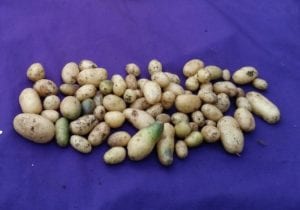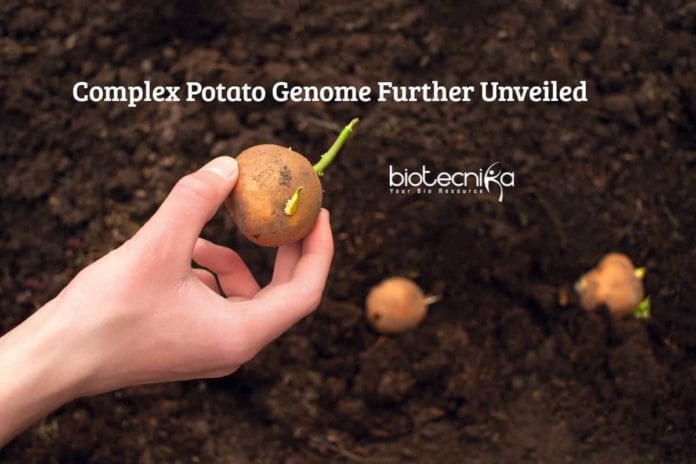Complex Potato Genome Unveiled
Researchers from Wageningen University & Research (WUR) and scale-up Solynta, the inventor of hybrid potato breeding, have now published the most complete genome sequence for the potatoes to date. A unique aspect is that both sequence and the plant material are made available for research studies (under specific conditions), which may in the future result in a potato that is more resistant to heat or drought or that has a greater resistance to diseases.
Potato is one of the most important food crops all over the world. Improvements to potato traits can, therefore, have a major impact worldwide. Reading the genome structure it is extremely tricky, however, as a regular potato consists of 4 genomes, which makes it difficult to determine the position of the genes. The recent study applied a diploid real potato plant with only 1 genome, a so-called homozygote, which makes it easier to read & compare the DNA base sequence. This potato plant, Solyntus, was produced as part of Solynta’s hybrid potato breeding program.

Richard Visser who is a professor at the Department of Plant Breeding at WUR is very enthusiastic about the new sequence of potato
. He said that the previously available genome sequence of potato consisted of approximately 125,000 small segments. The genome that is presented now comprises 185 large segments. And this is a significant improvement that was achieved via a combination of unique plant material, new sequencing & analysis techniques. While the previous genome sequence involved a wild variety of the potato, the team has now used an actual potato plant. Researchers hope that their work will eventually lead to a more efficient and faster potato breeding process, he added.Solynta’s Research & Development director Pim Lindhout is also pleased with the collaboration. He said this concrete result of a public-private partnership proves that researchers can describe & cross-breed new properties faster together. 2 years ago, researchers showed that we could make a potato plant that is disease-resistant within 2 years. This latest breakthrough means researchers can also explore and utilize other traits more quickly. He added that his team is convinced that this will lead to more sustainable potato production far sooner.
Various research study projects within WUR use both the plant and the sequence, enabling researchers to link experimental results to the genetic code. The very accurate genome sequence allows faster & more focused breeding, as it is very easier to find in the DNA which cross-breeds with other varieties might be of interest, and where the exchange of genetic material between ‘father’ & ‘mother’ should ideally take place. This means researchers know at an early stage whether the potato has the desired traits, such as resistance to specific diseases.
Editor’s Note: Complex Potato Genome Unveiled Researchers from Wageningen University & Research (WUR), inventor of hybrid potato breeding, complete genome sequence for the potatoes to date.






























